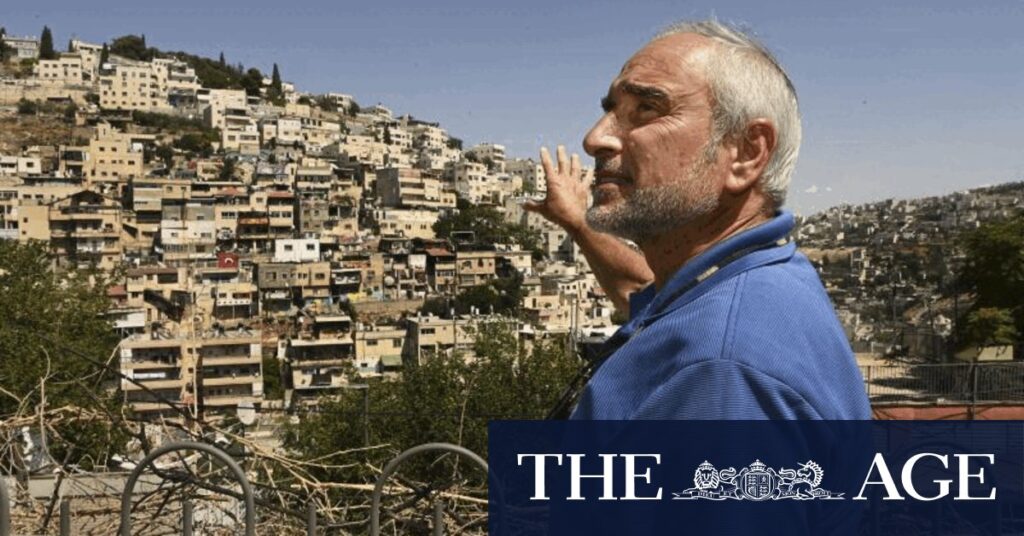
East Jerusalem is once again at the center of a heated property dispute, as Najah al-Rajabi, a 69-year-old widow, faces imminent eviction from her home of 55 years. This development is part of a broader effort led by Ateret Cohanim, a Jewish organization, to transfer Palestinian homes to Jewish families. The situation has sparked significant controversy and concern both locally and internationally.
Al-Rajabi’s home is located in the Batn al-Hawa neighborhood of Silwan, a densely populated area in East Jerusalem. She fears for her 18 family members, including her grandson Awad, who has been in a coma for six years and relies on a ventilator. The family faces homelessness and potential life-threatening conditions if evicted. The Israeli Supreme Court recently rejected their final appeal, paving the way for a Jewish family to move in under a law allowing Jews to reclaim properties owned before 1948.
Historical Context and Legal Battles
The legal battles over property in East Jerusalem are deeply rooted in the region’s complex history. Israel captured East Jerusalem in the 1967 Six-Day War and considers it part of its undivided capital. However, the international community, including the Australian government, views East Jerusalem as occupied territory and the prospective capital of a future Palestinian state.
Approximately 80 Palestinian families in Batn al-Hawa face similar eviction threats. The neighborhood is a focal point in the broader Israeli-Palestinian conflict, with its proximity to significant religious sites for Judaism, Islam, and Christianity adding to the tension. The evictions are not merely about property but are emblematic of the ongoing struggle over politics, power, and identity in the region.
The Role of Ateret Cohanim
Ateret Cohanim, led by Australian-Israeli Daniel Luria, plays a crucial role in facilitating these property transfers. Luria, who moved to Israel 30 years ago, describes the organization’s mission as “ideological real estate with an enormous number of political ramifications.” He frames the property battle in militaristic terms, emphasizing the ongoing “war for Jerusalem.”
Luria’s organization is accused of using controversial methods to acquire Palestinian properties, including alleged bribery and exploitation of legal loopholes. A 2022 Amnesty International report criticized Ateret Cohanim for its tactics, which include offering incentives to Palestinian property owners to sell their homes. Luria, however, insists that most transactions are voluntary and necessary due to Palestinian restrictions on property sales to Israelis.
International and Local Reactions
The actions of Ateret Cohanim and similar organizations have drawn widespread criticism. Human rights groups, including Amnesty International and B’Tselem, argue that the evictions amount to a form of apartheid and ethnic cleansing. The United Nations has also condemned the evictions, stating they violate international law and form part of a campaign to expand Jewish settlements in Palestinian neighborhoods.
“The mass eviction of Palestinians from their homes in East Jerusalem is so extensive it amounts to a form of apartheid and ethnic cleansing,” Amnesty International.
Despite the criticism, Luria remains steadfast in his beliefs, describing the Jewish families moving into these areas as modern pioneers. He argues that Jews have a historical right to return to these lands and reclaim properties lost during past conflicts.
Personal Stories and Human Impact
The human impact of these evictions is profound. Families like the al-Rajabis and others in Silwan face the loss of their homes and communities. Asmahan Shweiki, another grandmother in Silwan, is also preparing for eviction. She expresses her despair, saying, “We are living in a scary moment, I have no other place to go.”
For many Palestinians, these homes are more than just buildings; they are the sites of cherished memories and family histories. The emotional toll of losing a home is compounded by the fear of instability and uncertainty about the future.
Looking Ahead
The situation in East Jerusalem remains tense, with the potential for further conflict. The evictions have previously triggered violence, as seen in 2021 when a similar court decision led to a conflict between Hamas and Israel, resulting in significant casualties.
As international attention continues to focus on East Jerusalem, the actions of organizations like Ateret Cohanim will likely remain under scrutiny. The broader implications for Israeli-Palestinian relations and the peace process are significant, with property disputes in East Jerusalem serving as a microcosm of the larger conflict.
The coming weeks will be critical for families facing eviction, as well as for the international community’s response to these developments. The resolution of these disputes will have lasting impacts on the region’s future and the lives of those caught in the crossfire.







